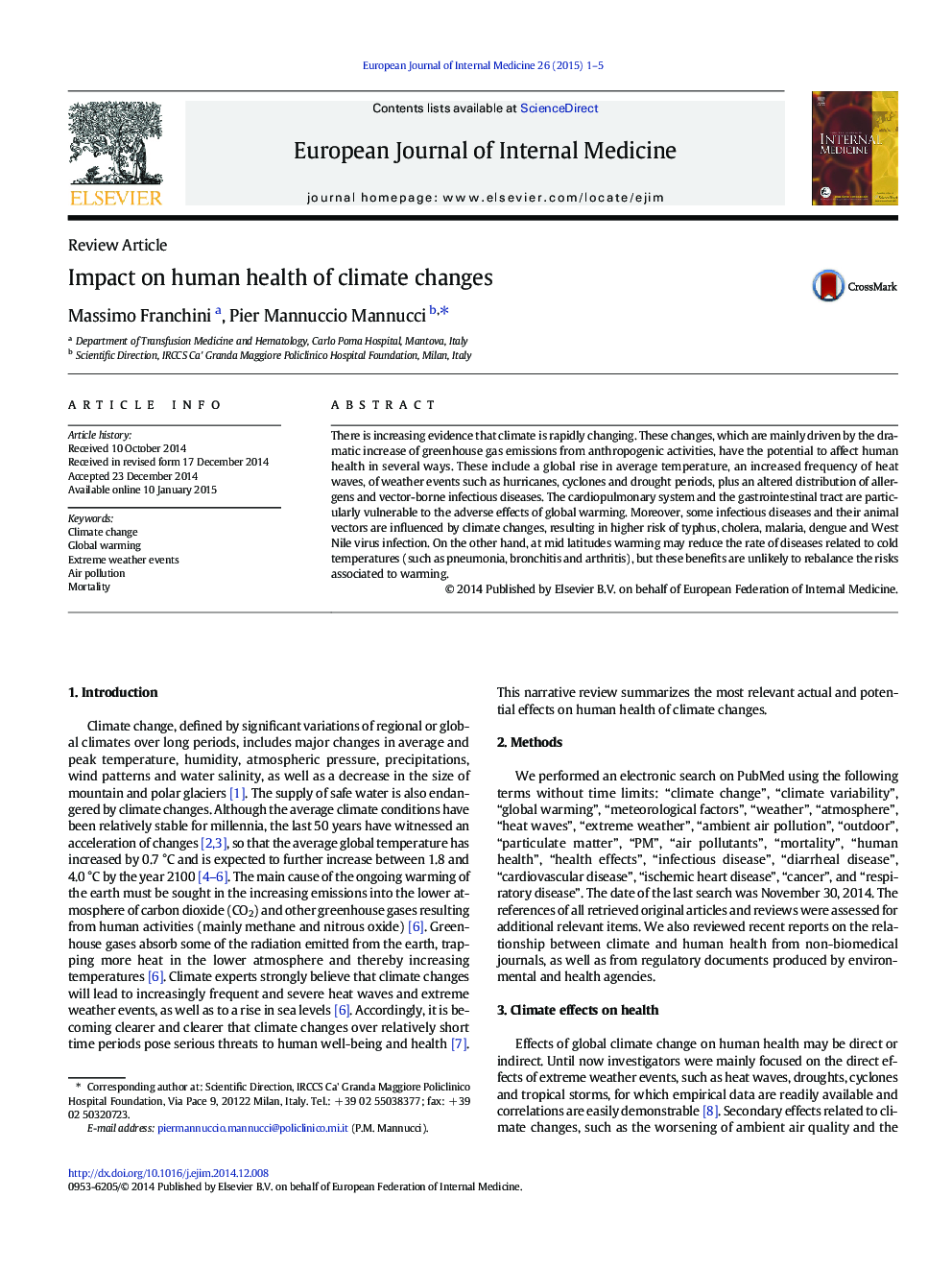| Article ID | Journal | Published Year | Pages | File Type |
|---|---|---|---|---|
| 3466539 | European Journal of Internal Medicine | 2015 | 5 Pages |
•The increase of greenhouse gas emissions is causing dramatic climate changes.•The cardiopulmonary and gastrointestinal systems are vulnerable to warming.•There is also a higher risk of infectious and allergic diseases.
There is increasing evidence that climate is rapidly changing. These changes, which are mainly driven by the dramatic increase of greenhouse gas emissions from anthropogenic activities, have the potential to affect human health in several ways. These include a global rise in average temperature, an increased frequency of heat waves, of weather events such as hurricanes, cyclones and drought periods, plus an altered distribution of allergens and vector-borne infectious diseases. The cardiopulmonary system and the gastrointestinal tract are particularly vulnerable to the adverse effects of global warming. Moreover, some infectious diseases and their animal vectors are influenced by climate changes, resulting in higher risk of typhus, cholera, malaria, dengue and West Nile virus infection. On the other hand, at mid latitudes warming may reduce the rate of diseases related to cold temperatures (such as pneumonia, bronchitis and arthritis), but these benefits are unlikely to rebalance the risks associated to warming.
